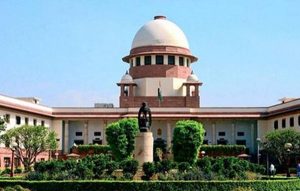 The Supreme Court in the case of THE STATE OF KARNATAKA & ANR. VERSUS K-9 ENTERPRISES vide Case No. SPECIAL LEAVE PETITION ( CIVIL ) DIARY NO. 11543 / 2025 dated 16.05.2025, upheld the decision of Karnataka High Court , wherein the High Court addressed the procedural requirements under Rule 86A of the CGST Rules concerning the blocking of Electronic Credit Ledgers (ECL). The High Court therein emphasized that blocking an assessee’s ECL has significant civil consequences. Therefore, before invoking Rule 86A, authorities must provide the assessee with a pre-decisional hearing to uphold the principles of natural justice.
The Supreme Court in the case of THE STATE OF KARNATAKA & ANR. VERSUS K-9 ENTERPRISES vide Case No. SPECIAL LEAVE PETITION ( CIVIL ) DIARY NO. 11543 / 2025 dated 16.05.2025, upheld the decision of Karnataka High Court , wherein the High Court addressed the procedural requirements under Rule 86A of the CGST Rules concerning the blocking of Electronic Credit Ledgers (ECL). The High Court therein emphasized that blocking an assessee’s ECL has significant civil consequences. Therefore, before invoking Rule 86A, authorities must provide the assessee with a pre-decisional hearing to uphold the principles of natural justice.
Facts of the Case: In this case, the assessee was engaged in the business of lead and lead scrap, had their ECL blocked by the tax authorities on 27.06.2023 under Rule 86A of the CGST Rules. The blockage was based on a field visit report indicating that some of their suppliers were non-existent. The assessee argued that no pre-decisional hearing was provided, violating principles of natural justice. The mandatory requirements of Rule 86A were not fulfilled.
Decision of High Court: The Court emphasized that blocking an assessee’s ECL has significant civil consequences. Therefore, before invoking Rule 86A, authorities must provide the assessee with a pre-decisional hearing to uphold the principles of natural justice. The revenue authorities relied solely on a field visit report suggesting that certain suppliers were non-existent. The Court held that such reliance without independent verification constitutes “borrowed satisfaction.” Authorities must independently assess and form their own “reasons to believe” before taking action under Rule 86A. Due to the absence of a pre-decisional hearing and lack of independent reasoning, the Court quashed the orders blocking the ECLs and allowed the appeals in favor of the assessee.
Also, reference made to the CBIC Circular No. 20/16/05/2021-GST/1552 dated 02.11.2021, where CBIC has provided guidelines to ensure proper application of Rule 86A. According to this, before disallowing debit of an amount from the electronic credit ledger, the officer must have “reasons to believe” that the credit has been fraudulently availed or is ineligible. This belief must be based on material evidence and recorded in writing. The power under Rule 86A should not be exercised in a mechanical manner. A careful examination of all facts and circumstances is essential to determine the necessity of blocking the credit. The restriction on the use of credit shall cease to have effect after the expiry of one year from the date of imposing such restriction.
However, the revenue authorities filed a Special Leave Petition (SLP) against the Karnataka High Court’s decision.
Supreme Court’s judgment: The Supreme Court dismissed the SLP, both on merits and due to an unexplained delay in filing. The apex court reaffirmed the necessity of a pre-decisional hearing and independent assessment before invoking Rule 86A.


